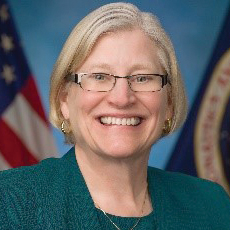DEI Evolution: Progress Abounds, but We Must Keep Going
PRESIDENT’S MESSAGE
When I started working at the Johnson Space Center (JSC) in 1985, I was not aware of any women in management positions, and few were held by men of color. In my own section, my male boss would not even leave a woman in charge when he was out of the office. I knew things were changing significantly the first time a male boss left me in charge during his absence. In 1994, Dr. Carolyn Huntoon became the first female center director at JSC. She not only represented a shift in diversity being a woman, but she was also a scientist instead of the usual engineer. Today there are many women and people of color in high-level management positions at JSC, including flight controllers, which was strictly a male domain in the past.
Many of my fellow members on the IFT Board of Directors share similar stories of their companies’ diversity evolution. Most of us agree that the various attributes of a diverse workforce, including different ethnicities, cultures, lifestyles, experiences, and abilities, are better represented than ever before.
October is Global Diversity Awareness Month—an opportune time to reflect on progress and celebrate the impact a diverse workforce can have. It’s also a time to consider the inequities and barriers present today and actions we need to take to dismantle these obstacles.
When you bring together diverse voices and experiences, good things can happen. In inclusive environments that sustain this diversity, people feel empowered, problem-solving skills are enhanced, innovation increases, performance improves, and competitive advantage is gained. On the contrary, when we limit the types of people we include in our acquaintance and our decision-making circle to people just like us, we exclude valuable points of view and expertise that could make our decisions and our organization better.
While diverse representation is undoubtedly important, it is only one part of the equation. We need to move beyond diversity to create an environment where people are welcomed, included, and comfortable bringing their authentic selves to the organization. We need to redistribute power and influence so that every voice is heard and matters. We need to create a sense of belonging and purpose, where every member can see themselves as part of the greater good. For the last four years, IFT has worked diligently to make these needs our reality.
One of the most notable ways we’ve seen this work come to life in the last year is the introduction of the Include Award in honor of George Washington Carver, which recognizes the work of an individual or organization in the science of food to advance diversity, equity, and inclusion (DEI). Ruth Oniang’o, PhD, founder of the Rural Outreach Program–Africa and African Journal of Food, Agriculture, Nutrition and Development, was named the 2021 recipient of the award. Among Oniang’o’s extraordinary accomplishments are her contributions in advancing the science of food across Africa, alleviating food insecurity, promoting equitable access to education for women, and uplifting and improving the quality of life for people in Kenya and beyond. She serves as a positive example of the impact we can have on the world around us when we embrace and embody DEI principles in our work and life.
Another important step in our DEI journey came to life in September with the introduction of our first two Member Resource Groups—the African American, African, and Black Resource Group and Women’s Resource Group. These member-led, identity-based groups provide a supportive space for members who identify as part of these groups and their allies to find community, collaborate, and support one another. They also help IFT better understand the needs and challenges of members who have historically been underrepresented, under supported, and underinvested within IFT and the science of food profession so we can more effectively engage and serve them. Both of these groups can and will give a collective voice to segments of our membership who have been overlooked or marginalized in the past. We encourage all of our members to consider joining, whether to listen, learn, or actively engage as it can have a profound impact on your outlook.
A 2020 report from McKinsey & Company said, “progress on inclusion and diversity could slow down during and after the crisis unless companies consciously focus on advancing diversity and fostering inclusion.” While other organizations may have hit pause on their DEI efforts, IFT was not one of them. We recognize that while we’ve made significant strides in embedding DEI principles in everything we do, there is always more work to be done. As we move past Global Diversity Awareness Month into the rest of the year, I’m confident we’ll continue evolving in a positive direction.


